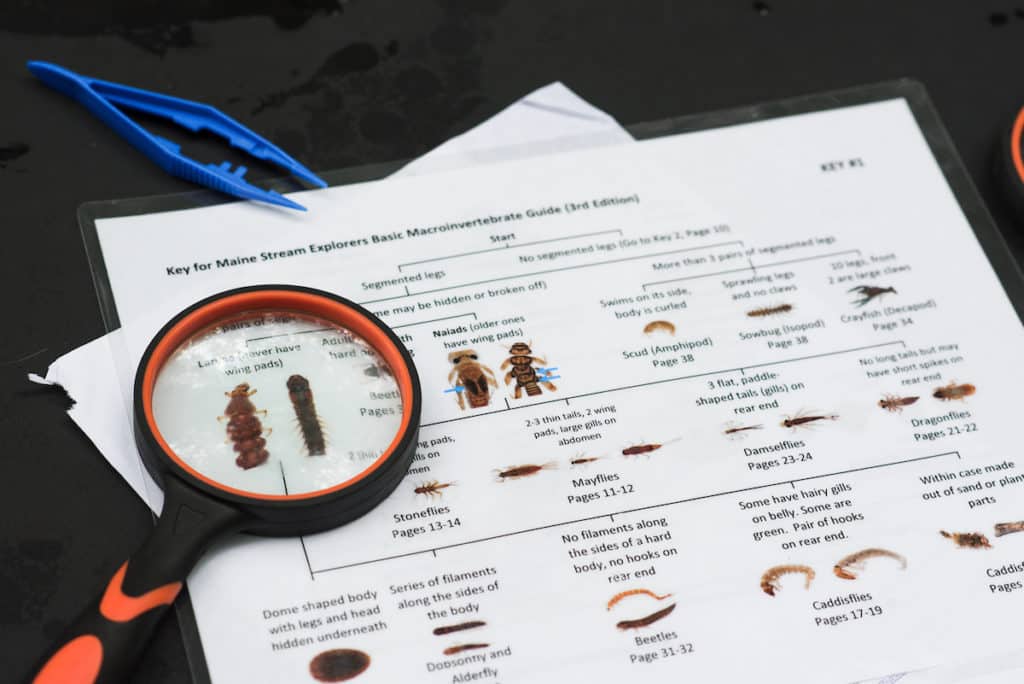
It’s officially spring so that means it’s time to check on your local streams, explore water quality, and find bugs! We’re kicking off a new Stream Explorer season and recruiting community scientists who can help survey large aquatic insects (macroinvertebrates) in Maine streams.
If that sounds interesting to you, there are two ways you can get started: attend the in-person training on April 27 or watch the recorded training videos. Both options will teach you how to find and identify approximately 40 “Least and Most Wanted” aquatic insects that are indicators of stream health. From there, you’ll visit one to three streams between May and October, searching for the Least and Most Wanted macroinvertebrates. Enter your data online, or mail it in, and have the opportunity to see how “your” streams measure up against others in Maine. We will provide training, equipment, maps of the survey streams, and data forms and instructions. We recommend you conduct your surveys in pairs for safety reasons.
This year we’re thrilled to offer an in-person training on April 27 from 5:30 to 7:30 pm at Maine Audubon’s Gilsland Farm Audubon Center, 20 Gilsland Farm Road in Falmouth. Kits will be available to check out at the training.
If you can’t make it in person but you’d still like to participate, don’t worry! You can watch last year’s training webinar on the Stream Explorers webpage and head straight out to survey.
As a follow-up to the training, optional in-person sessions will be held in June. Details will be made available in May.
The data collected by community scientists will provide insight into water quality and the overall health of streams and rivers. Large aquatic insects (or macroinvertebrates) are excellent indicators of a changing environment. Some require cold, clean water and high-quality habitat. Others can tolerate warm, polluted water or poor habitat quality. So the presence or absence of different species can inform us about both water quality and the ecological health of a stream.
Macroinvertebrates are also an important food source for many other aquatic and semi-aquatic species; and they are often the basis for much of the stream food web. If there are very few insects in the stream, the rest of the aquatic food web will be affected.
More information:
Email conserve@maineaudubon.org
Call Hannah Young, 207-781-2330 x219
